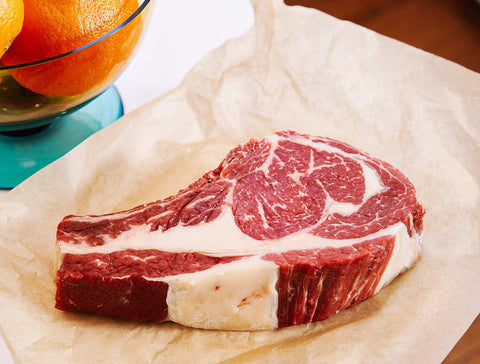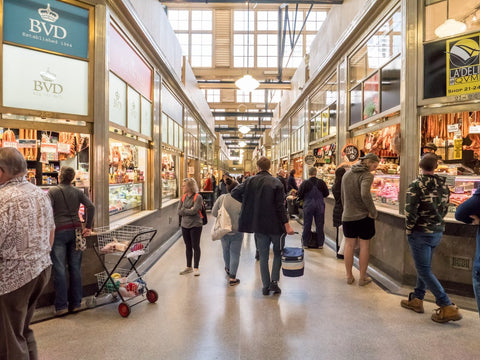You’ve heard of ‘grass-fed beef’ before, but ‘grass-fed’ means so much more than you’d think. At Hagen’s, we’re passionate about supporting regenerative agriculture to improve our planet, and today we’re going to look at how grass-fed livestock play a key role in this sustainable farming movement.
In typical industrial farming, cattle are raised from birth in ‘feedlots’, where they are weaned, pastured occasionally, then for the last 4 months, ‘finished’ on a high-calorie grain feed to make them gain weight fast & develop extra fat marbling through the beef. This process ‘speeds up’ the cows’ natural development, and they’re usually only 14-18 months at slaughter.
By comparison, grass-fed-and-finished cattle live their whole lives grazing on pasture. Because this feed is lower in calories, they take a little longer to mature naturally to a good weight and develop the best amount of marbling through the beef.
Not only is this healthier for the animals and results in better quality meat, but this way of farming aligns with the principles of regenerative agriculture, which is all about stopping climate change by prioritising soil health to improve biodiversity and trap carbon out of the atmosphere.
With grass-fed cattle, land doesn’t have to be ploughed to plant crops for livestock feed, making it less susceptible to erosion and nutrient loss. As they roam and graze, the animals will naturally fertilise the pasture with their manure, and contribute to the development of new soil.
Studies suggest that grass-fed beef could reduce carbon emissions by sequestering carbon in the ground through preventing erosion and developing new topsoil. According to environmental economist Judith D. Schwartz, there’s more carbon contained in the earth’s soil than there is in the atmosphere and plant life combined.
With this in mind, grass-fed cattle and regenerative agriculture show significant potential for reversing climate change. One such cattle producer that follows this planet-first approach is Sambell Organic.
Sambell Organic
Starting from humble beginnings as butchers, this family-run farm raises high quality, grass-fed organic Angus beef in Ballangeich, Victoria.
Farmers Stephen & Emma are dedicated to supplying quality organic, high-marbling beef, using naturally-sourced products that support happy and healthy animals while also caring for the soil, grass and land beneath them.
Herded and handled with care, their livestock live a low stress life that results in incredibly tender, flavourful, and highly-marbled organic Angus beef.







